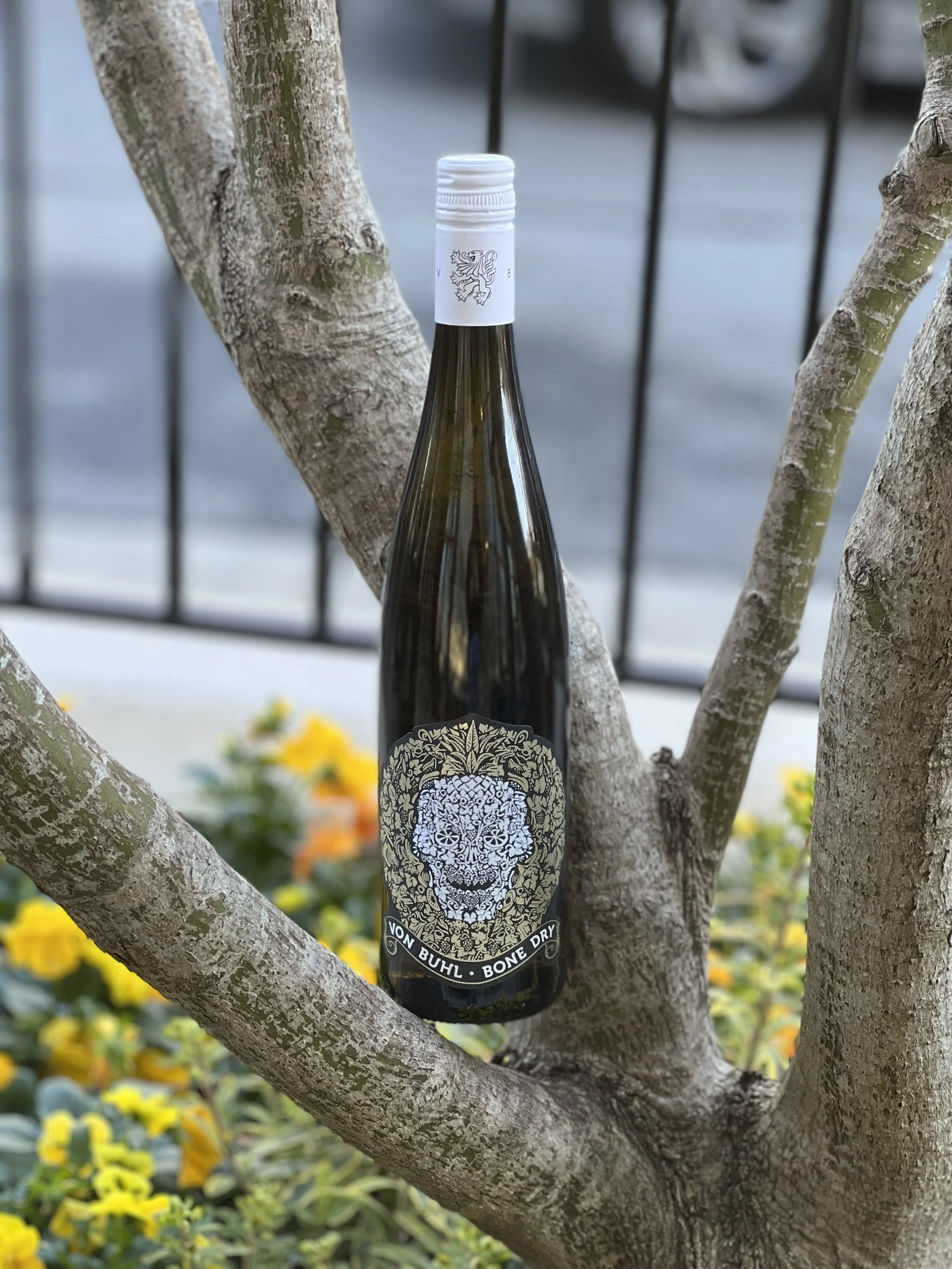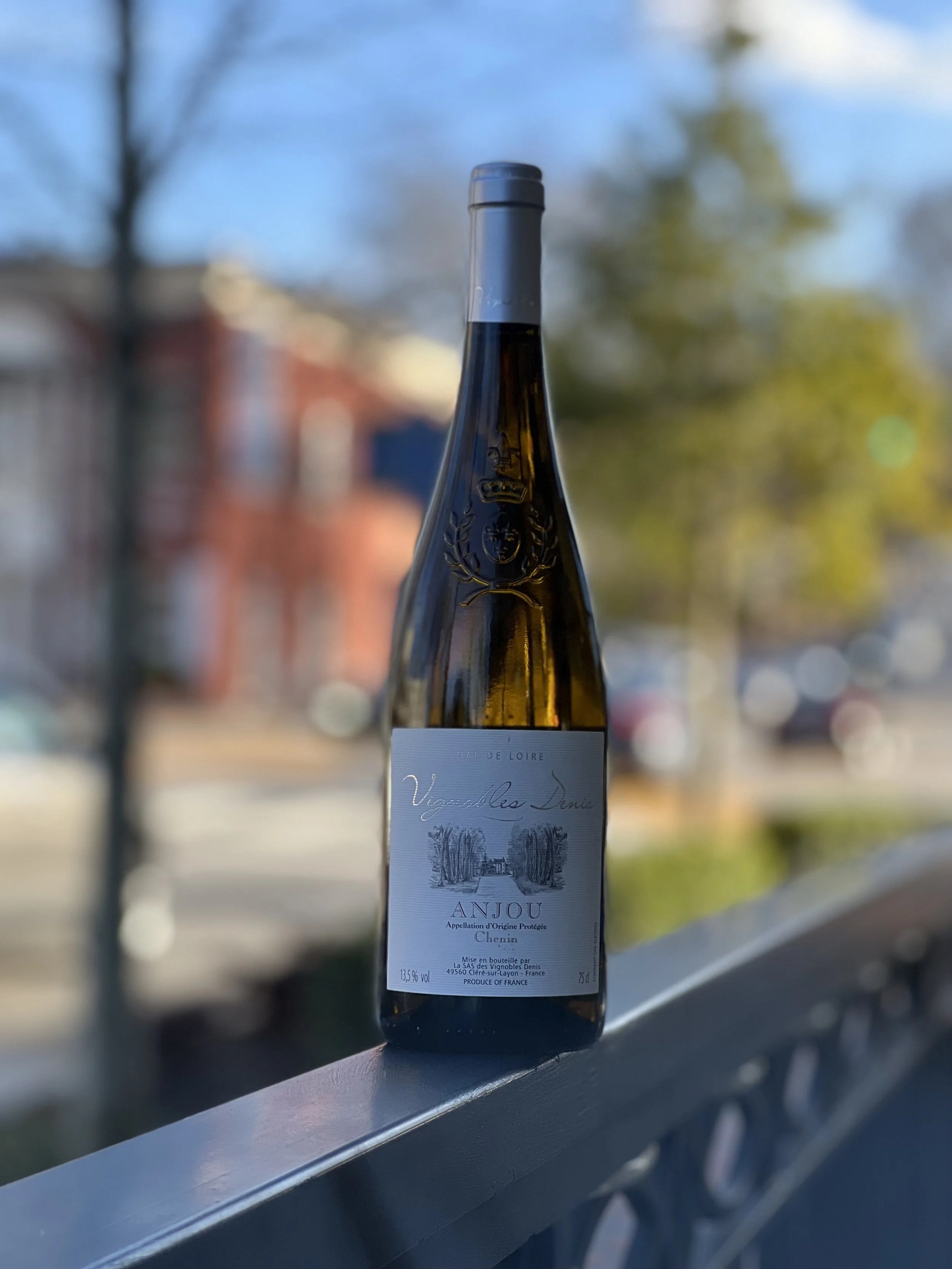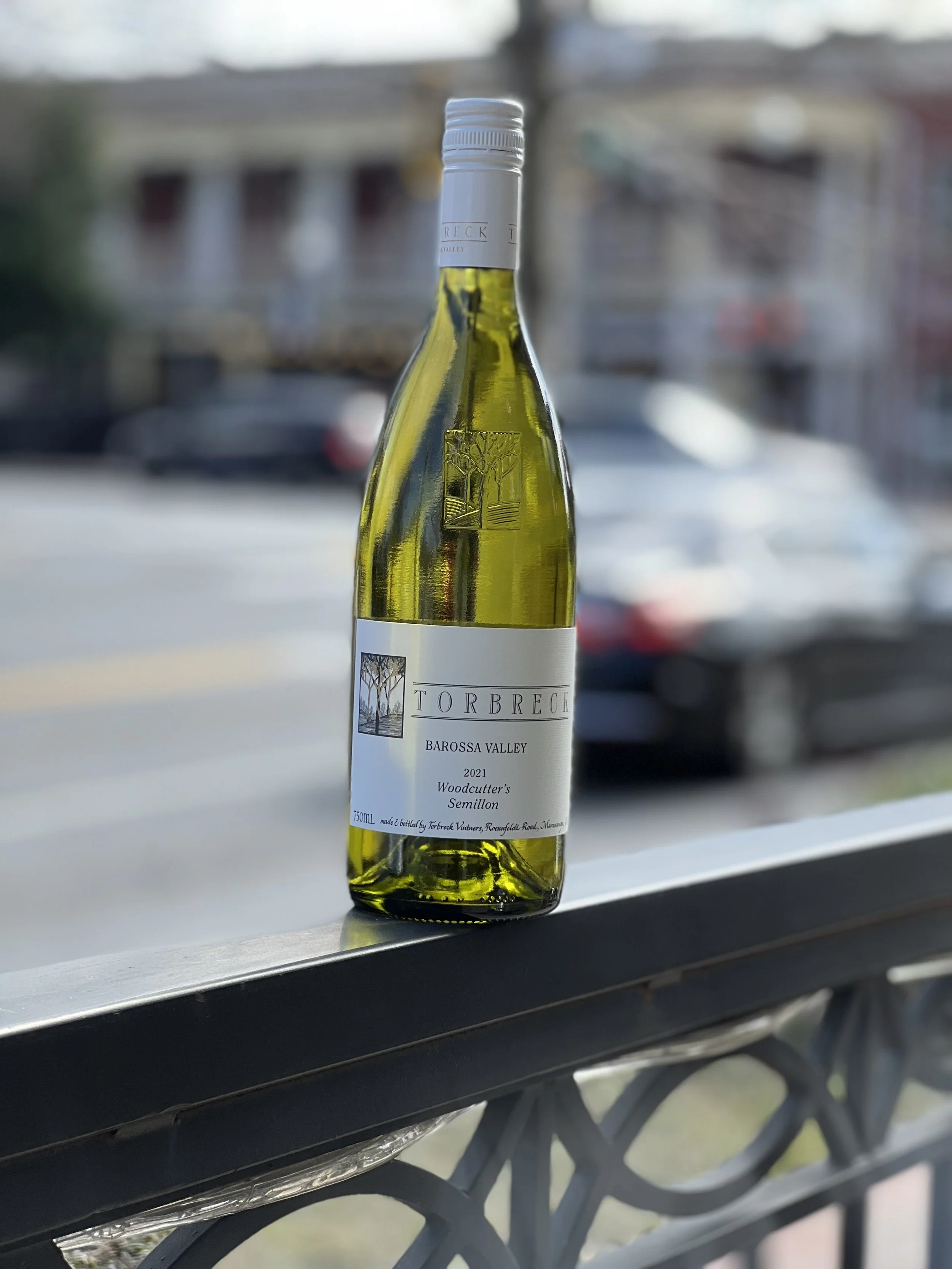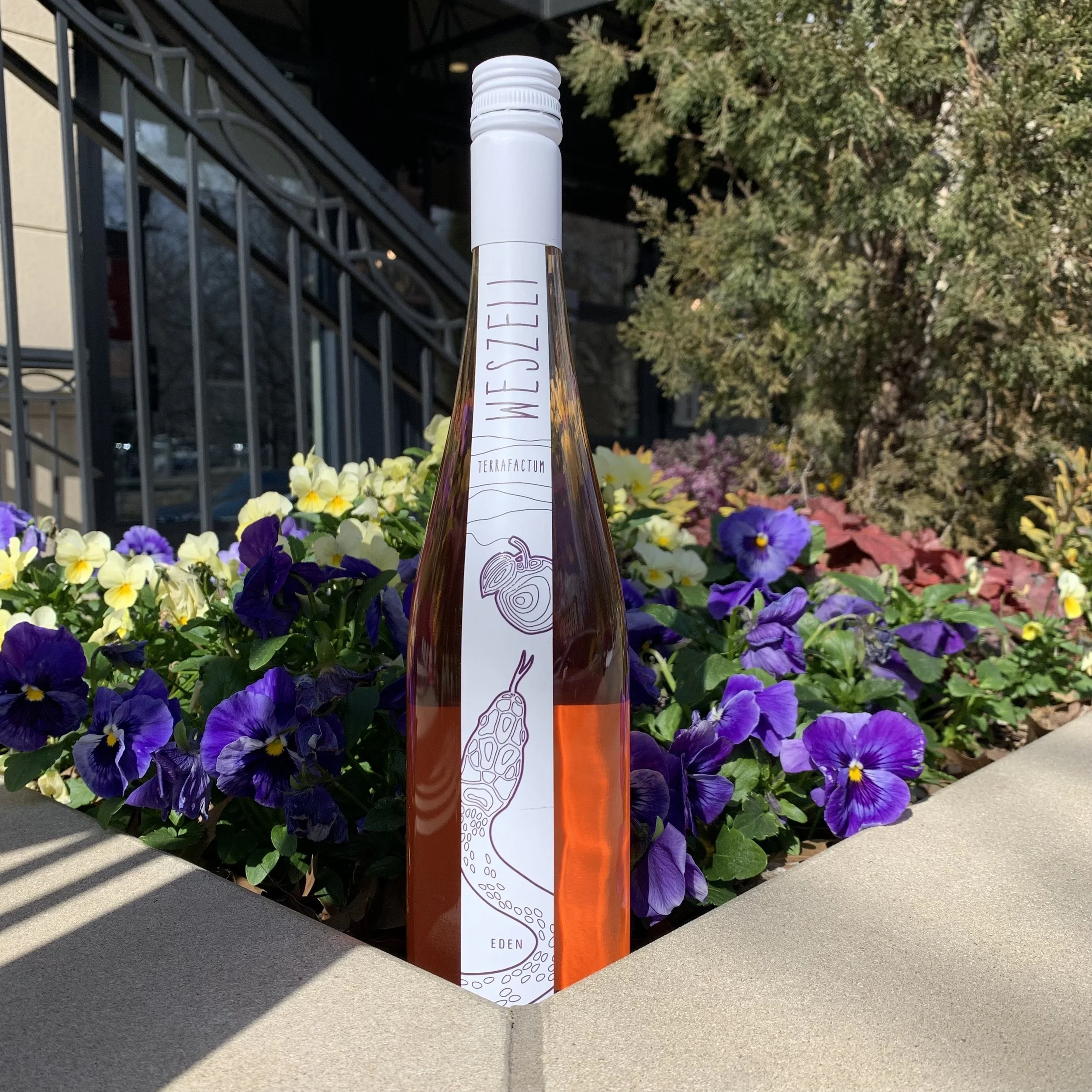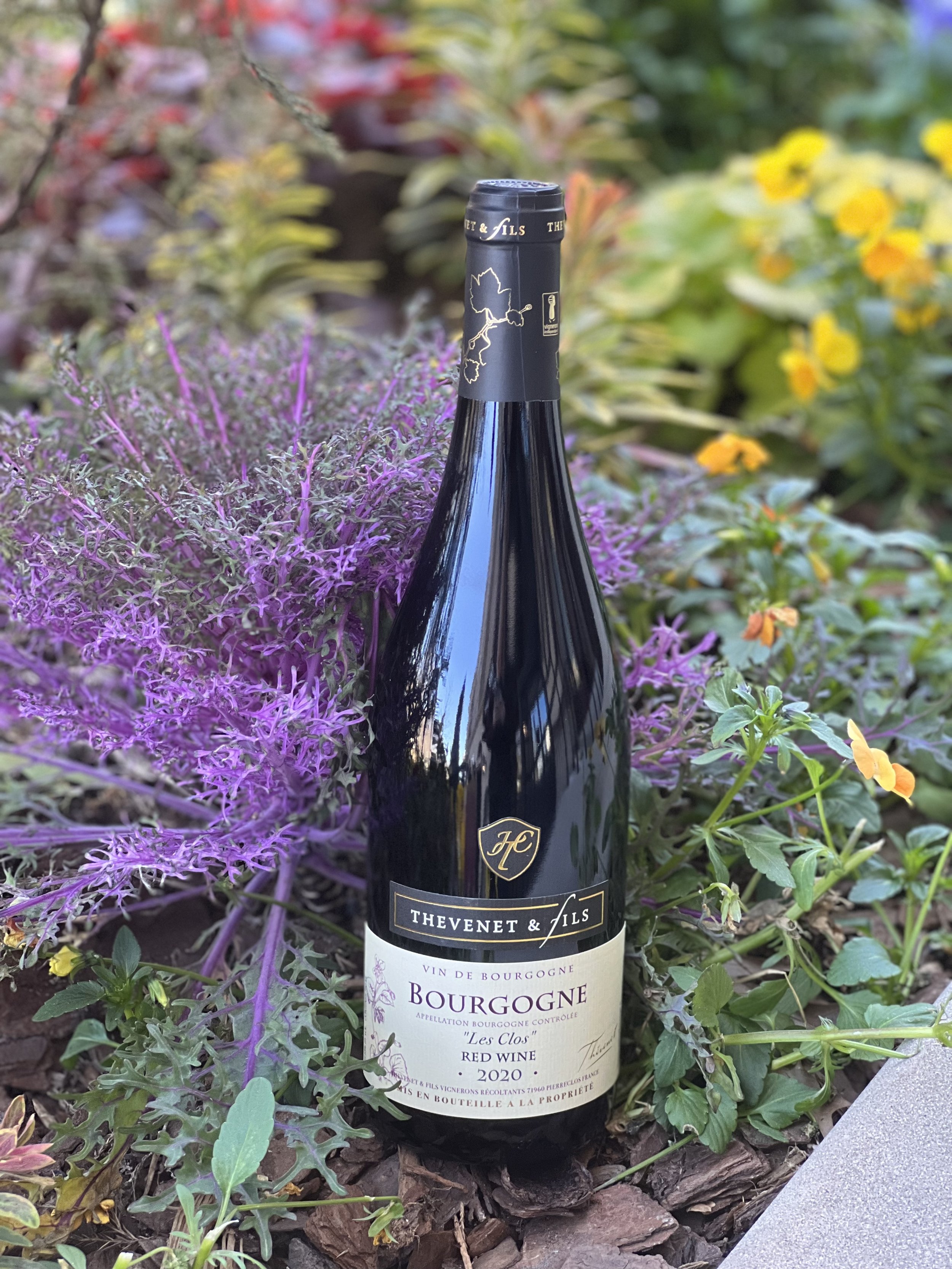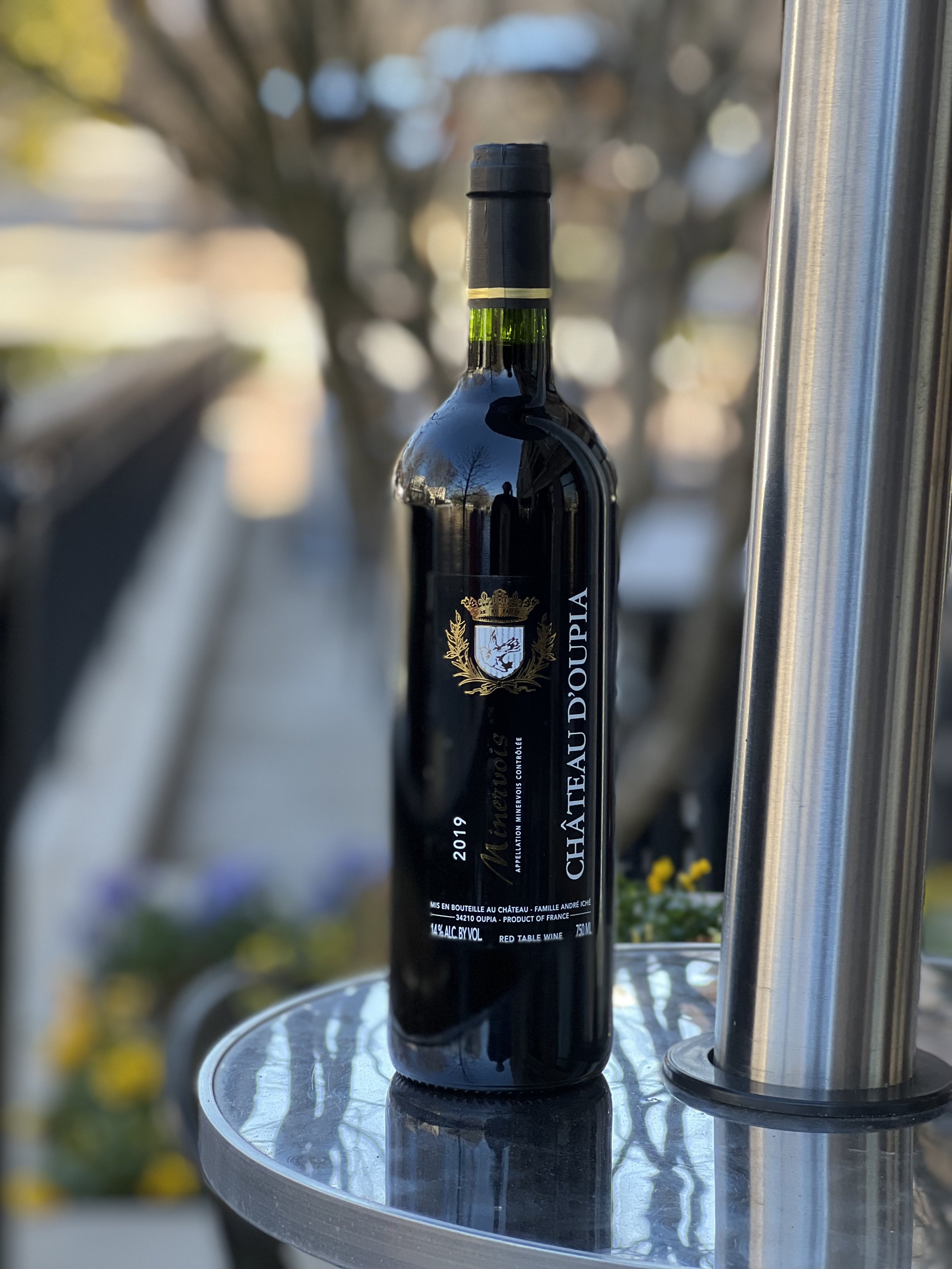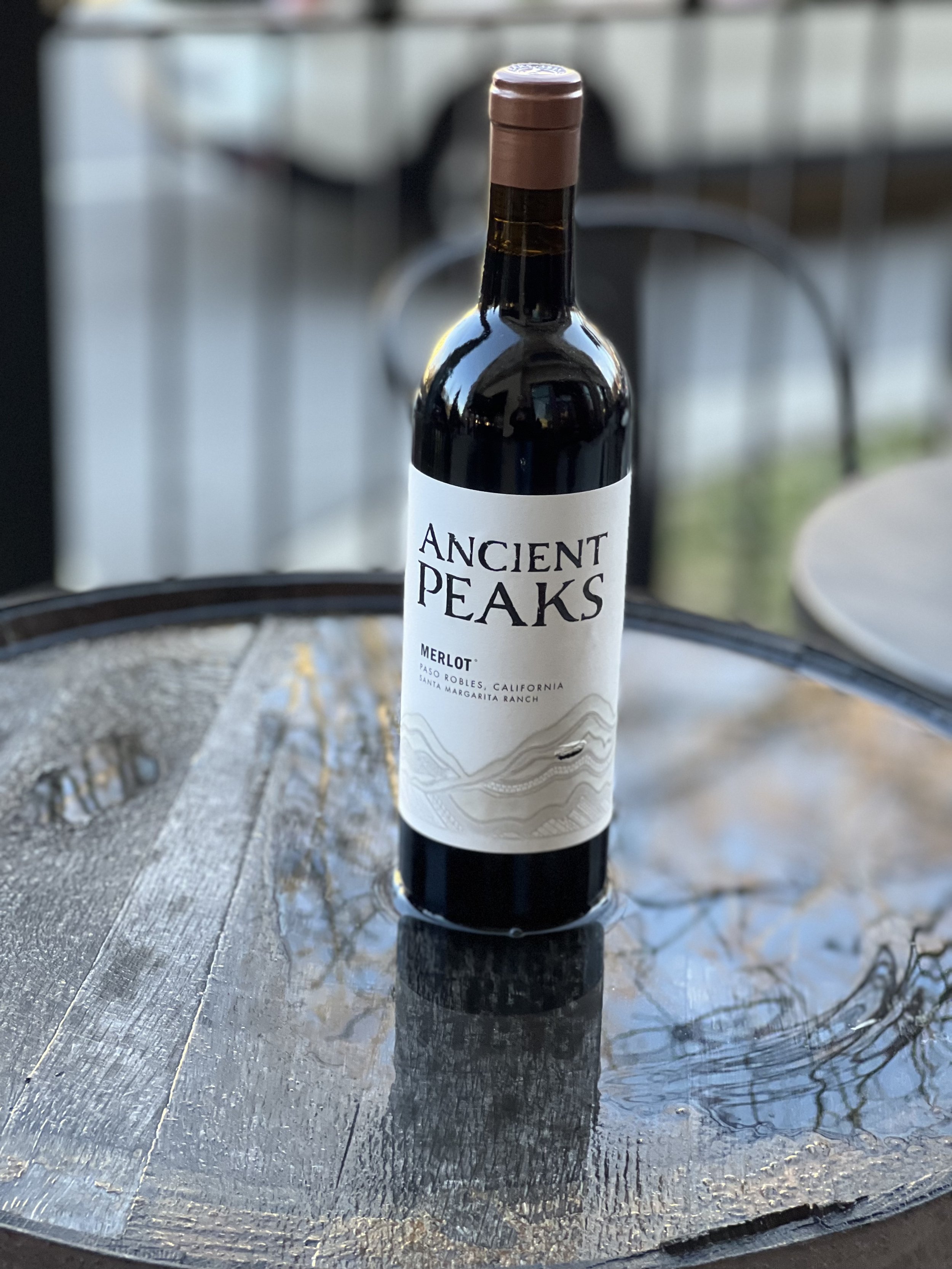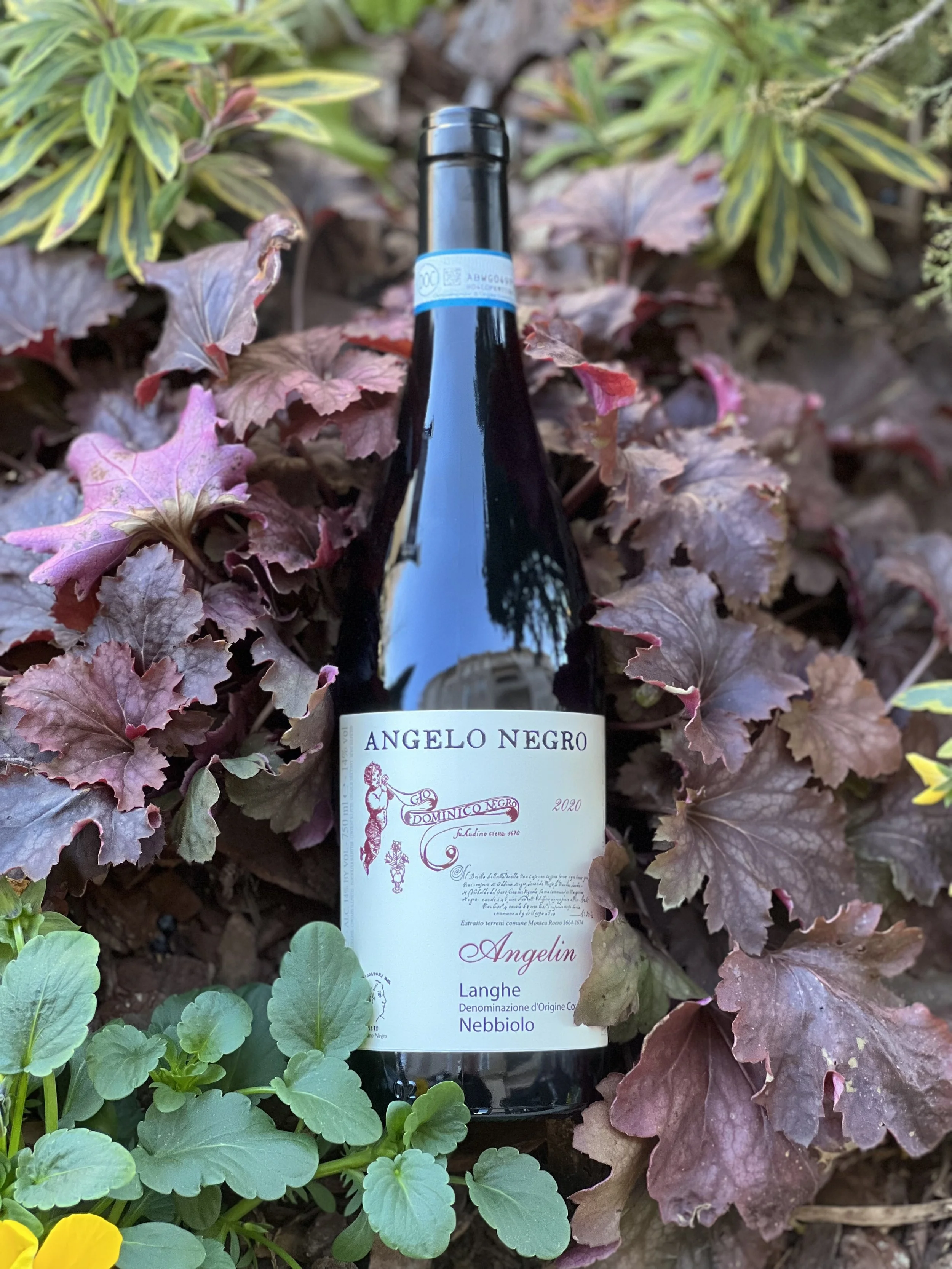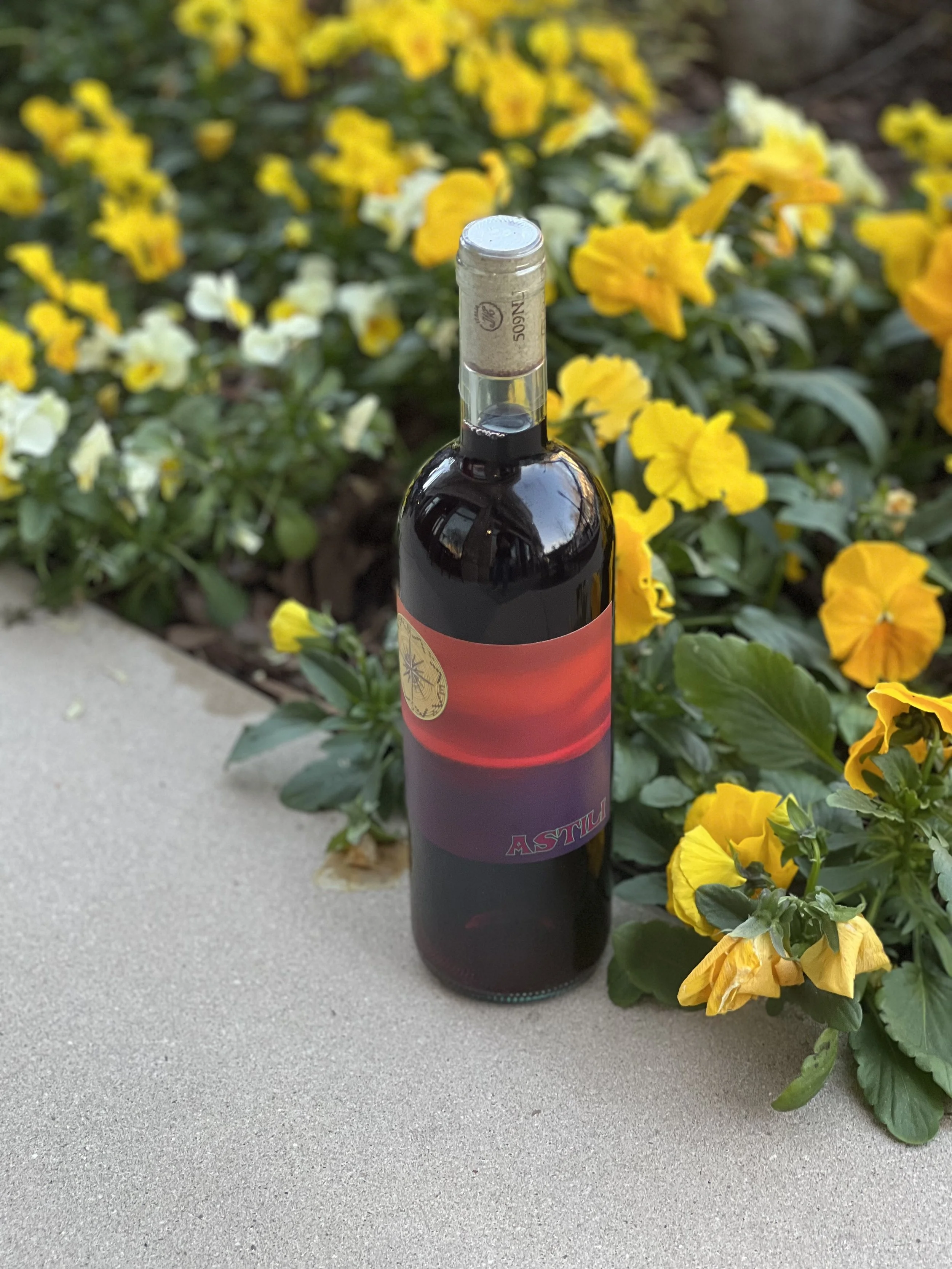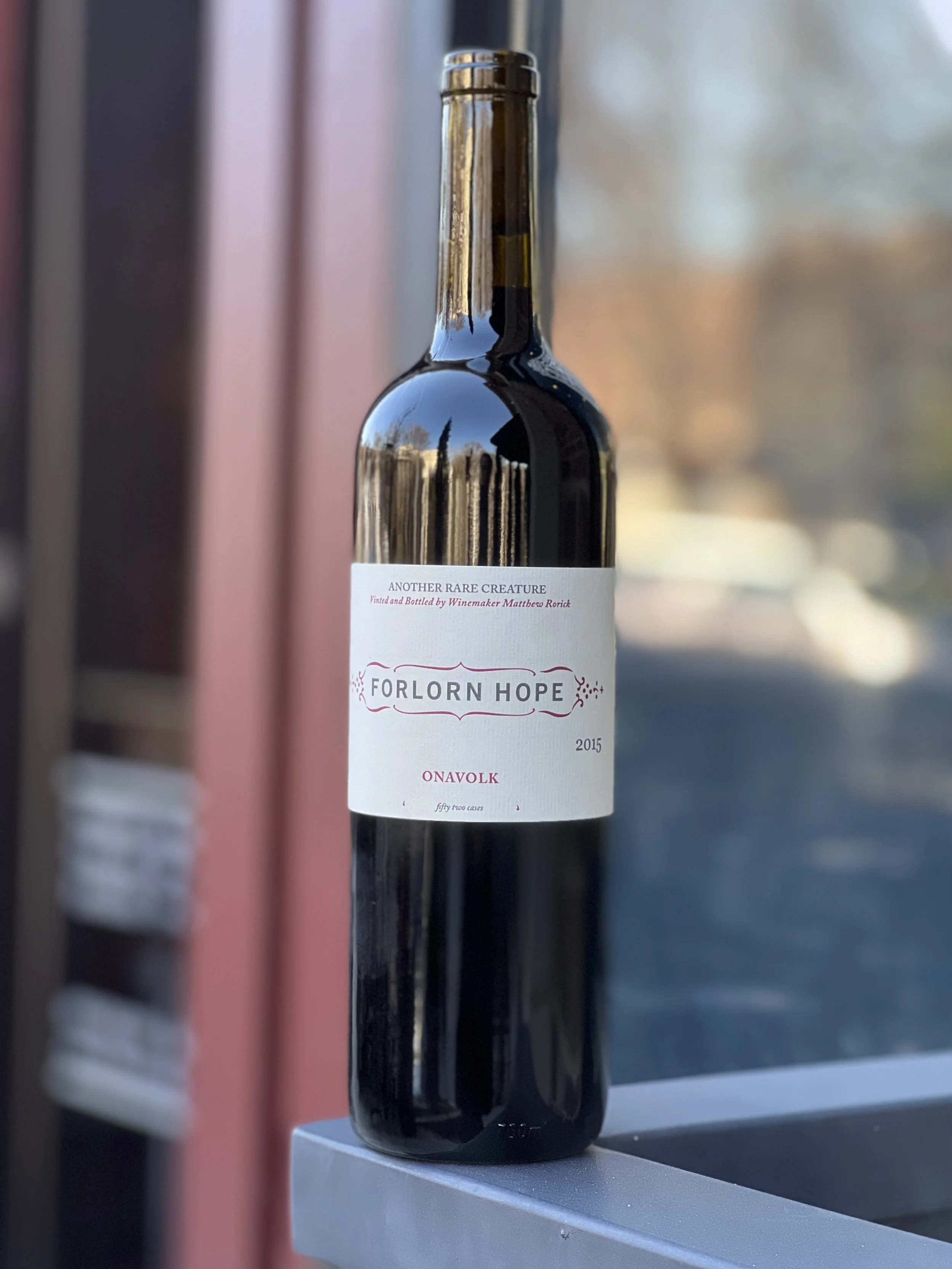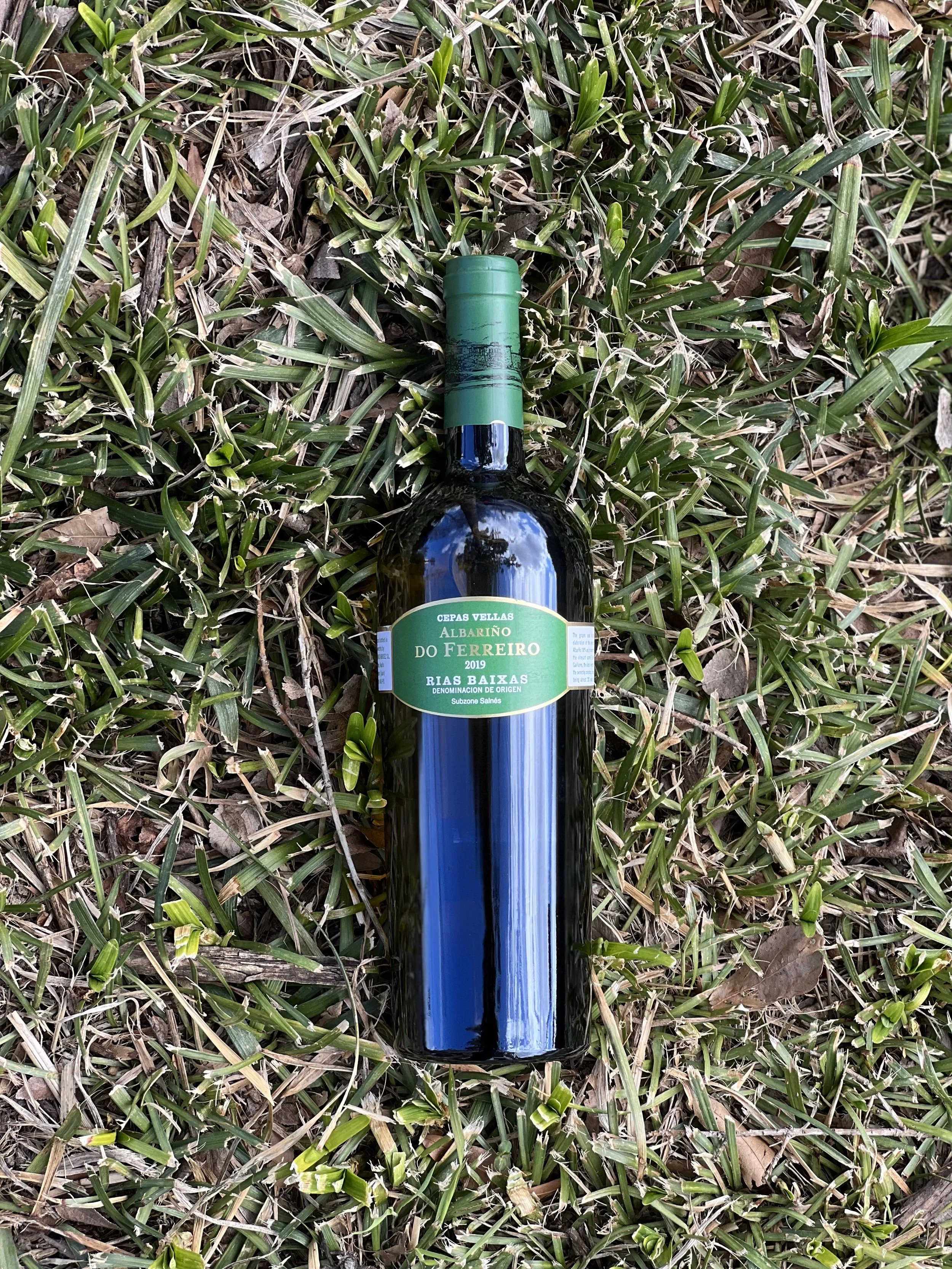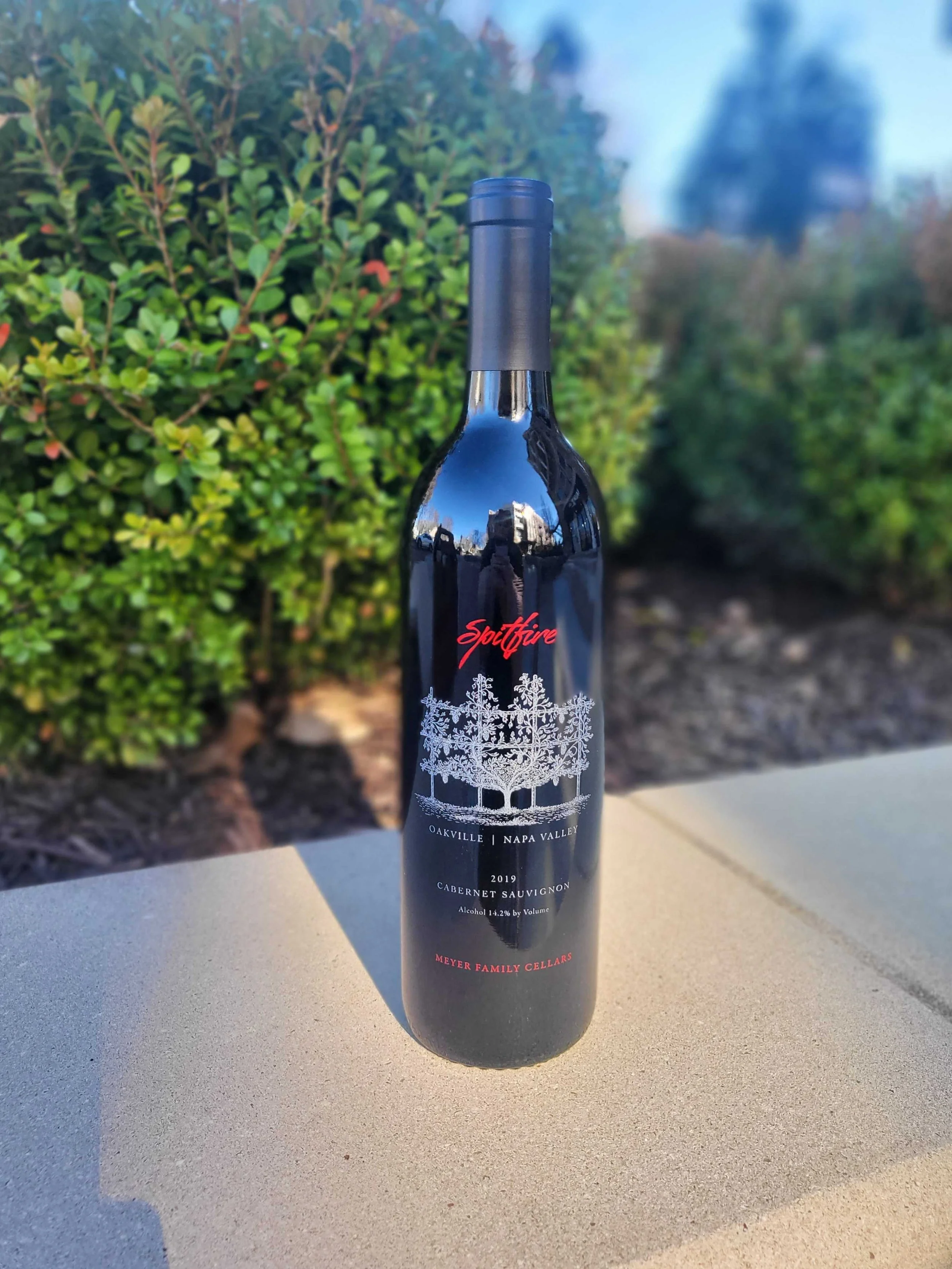UNDERGROUND WINE SOCIETY: febrUARY
SCROLL BELOW TO FIND INFORMATION ON YOUR WINES!
The Explorer
$49/month
White/Rosé
Von Buhl
Grapes: Riesling (100%)
Region: Pfalz, Germany
Wine Notes: “The wines at Reichsrat von Buhl impress with their precise and clear style. They reflect a location and variety-typical characteristics. On the one hand, we achieve this by making our dry wines very dry. On the other hand, the interplay between acidity, residual sugar and alcohol content ensures that our wines have fine fruit and aromas. We deliberately keep our Bone Dry line "bone dry" and express this both in the name and on the label. The respective wine aromas are optically integrated in the skull, the name Bone Dry stands for the very dry development of the wines. Gentle aging in stainless steel and tonneaux on the full lees until February 2021. Good with Tapas and Salads.“
Vignobles Denis Anjou
Grapes: Chenin Blanc (100%)
Region: Loire Valley, France
Wine Notes: “The family’s motto is ‘quality and respect for life.’ As such, they not only pay careful attention to the interplay between the soil and vine, but also to the care and maintenance of those soils. They are committed to both the short-term production of quality wines and the long-term health of the land. They avoid the use of chemical treatments and use environmentally friendly practices, such as grassing over the vine rows or working the soil, to avoid the use of weed killer.“
Fruit carefully selected on sorting table; 12 hours maceration; fermentation at controlled temperature of 64-68,° Pairs well with creamy pastas, fish in butter sauces and vegetables.
Torbreck Woodcutter's Semillon
Grapes: Semillion (100%)
Region: Barossa Valley, Austraila
Wine Notes: “Semillon has always found a natural home in the Barossa. It was one of the early white wine grape varieties planted by the first settlers around 160 years ago and the Mediterranean climate and careful farming has created a heritage of old, low yielding Semillon vineyards. With the use of an age-old, robust, pink-skinned Madeira clone, found mainly in the Barossa, and maturation in both stainless steel and seasoned French barriques, the Woodcutter’s Semillon is reminiscent of the savoury, food friendly white wines found in the central and southern regions of France. Natural malolactic fermentation.”
Hill Family “Carly’s Cuvee”
Grapes: Chardonnay (89%) & Semillion (11%)
Region: Napa Valley, California
Wine Notes: “The Carly’s Cuvee was made from a selection of Chardonnay vineyards that Doug Hill has close connections with or manages himself. This wine was made with little malolactic influence, and only light oak. It’s a crisp multi-layered Chardonnay that will please people looking for a wine that enhances food and holds its own on the patio. Carly Hill is Doug Hill’s daughter, and her contributions to Hill Family Estate are honored with this beautiful wine.
Sfera Macerato
Grapes: Verdeca (100%)
Region: Puglia, Italy
Wine Notes: “From the Alps to the Mediterranean, SFERA is a collaboration with small certified-organic farmers to bottle Liters in limited runs. Native yeast fermentation with 12 days extended skin contact.”
Weszeli Osterreich Rose, ‘Eden’
Grapes: Zweigelt (80%), Cabernet Franc (20%)
Region: Kamptal, Austria
Wine Notes: From 25 year old vines planted in loess soils, the grapes are vineyard sorted and hand-harvested in mid-September. Maceration takes place for 1-12 hours for 65% of the grapes that are also de-stemmed), while the other 35% whole cluster pressing. Spontaneous fermentation takes place with indigenous yeasts in stainless steel and lasts three weeks under temperature control. The wine spends one month in contact with the lees (no stirring). Aged in steel tank for four months. Unfiltered.
Reds
Thévenet & Fils “Les Clos”
Grapes: Pinot Noir (100%)
Region: Bourgogne, France
Wine Notes: “The pinot noir for this wine is found in the village of Bussieres and is sourced from the lieu-dit « Les Clos ». The vines are south-facing at 350 feet above sea level on gently sloping hills that are principally composed of clay. The fruit tends to ripen early due to its excellent exposure. Pigeage and remontage are practiced during fermentation. This wine is marked by notes of black, ripe berries, often a touch ‘sauvage’.”
Eric Texier “Chat Fou”
Grapes: Grenache (50%), Cinsault (30%), White Grapes (20%)
Region: Côtes du Rhône, France
Wine Notes: “40% max of destemming, very short short four day maceration, fermented and aged in concrete. Chat Fou is now being sourced from the granite terroirs of Saint-Julien, giving it a very fruity, easy style compared to most CDR. Eric also adds about 20% of white grapes to lighten the blend. The wine's name translates to "Crazy Cat" and is named after one of the Texier's cats who was in fact quite crazy.”
Chateau D’Oupia Minervois
Grapes: Carignan (50%), Syrah (40%), Grenache (10%)
Region: Languedoc, France
Wine Notes: “This bottling comes the older vines of the estate, some up to 100 years old and on the hillsides of Minervois hillsides, with some Carignan up to 100 years old. They are sustainably farmed and harvested partly by hand and partly by machine. The Carignan remains in whole clusters and undergoes a full carbonic maceration; the Syrah and Grenache are destemmed and macerated up to 30 days. Fermentation is with selected yeasts in concrete vats; aging takes place in vat as well. The wine is bottled without fining or filtration.”
Ancient Peaks
Grapes: Merlot (100%)
Region: Paso Robles, California
Wine Notes: “The 2019 vintage comes from four Merlot blocks that exhibit their own distinct qualities, bringing natural complexity and dimension to the finished wine. These blocks are situated along the slopes of an uplifted ancient sea bed, where the well-drained, calcium-rich soils are distinguished by decomposing oyster fossils. Block 15 is a newer planting that delivers dark, velvety black fruit flavors. Meanwhile, Blocks 5 and 7 yield a more nuanced character with both softness and power. Finally, Block 4 presents a brighter spectrum of red fruit flavors. The rich, juicy qualities of the 2019 Merlot are an excellent match for baked pork tenderloin, crispy duck breast, mushroom risotto and pan-seared sirloin with garlic butter.”
Angelo Negro “Angelin”
Grapes: Nebbiolo (100%)
Region: Piedmont, Italy
Wine Notes: “Maceration: in steel, with traditional hat floating for about 15-18 days Ageing and refining: 12 months Storage and shelf life: lying bottle, over 5 years”
ZINIO Reserva 2016
Grapes: Tempranillo (100%)
Region: La Rioja, Spain
Wine Notes: Double selection of grapes (field and cellar). Destemmed, crushed and cold maceration v 10 days of alcoholic fermentation, followed by of two weeks of maceration of the wine with its solid parts. Malolactic fermentation before starting the aging process. Ageing: 18 months in French and American oak barrels. In bottle remained 2 years, where it finished tuning.
Cardedu Astili
Grapes: Cannanou (50%) & Bovale Sardo / Muristeddu, Monica, and Pascale (50%)
Region: Sardegna, Italy
Wine Notes: “Sergio Loi is a 4th generation traditional Sardinian producer, whose family winery from the early 900s has always practiced no chemical farming and minimum intervention in the cellar. The Cardedu [car-DAY-do] vineyards are located on the island’s sparsely populated Southeast, on crumbling granite soils near the coast, and schist in the ragged-dry hills and cliffs around Jerzu. Astili is a field blend coferment that comes from Sergio’s oldest and highest altitude vineyard, perched just above the town of Cardedu on the slope of Mount Astili; it’s planted to Cannonau, Bovale Sardo / Muristeddu, Monica, and Pascale varietes..”
Forlorn Hope "“Onavolk”
Grapes: Merlot (100%)
Region: Calaveras County, California
Wine Notes: “The 2015 Onavolk was grown in the Rorick Vineyard in Calaveras County, on soils comprised of a layer of schist over dolomite-rich limestone. Elevation of the vineyard is 2000’. The combination of limestone, elevation, and the cold nights of the Sierras produce fruit with depth, texture, and brilliant natural acidity; minimal handling in the winery allows for an honest and pure representation of site and variety to shine through. The framework for this wine is one of high acid and firm tannins -- both elements are hallmarks of wines grown on RHV. From this base of structure we are flooded with generous fruit: black plums and brined olive balanced with ample crushed stone and swirls of dusty, dry soil. There's an incredible savory aspect that continues to unfold as the wine opens, with notes of sandalwood, cassis, lavender, and cherry. This Merlot was hand-picked and fermented with 100% stem inclusion. Vigorous pigeage was undertaken at reception in order to avoid carbonic character -- perhaps call it a “stem inclusion” fermentation as opposed to “whole cluster” fermentation; an important distinction as the term “whole cluster” can imply that the clusters are sound/unbroken at the start of ferment, resulting in carbonic maceration. Following this treading, the fruit was placed in an open-top vessel; 2 manual punchdowns were applied daily until the wine was dry. Primary fermentation lasted 20 days, at which time the wine was pressed down to neutral 227L barriques. The wine was racked off of its lees at 10 months and saw a total of 20 months elevage. Bottled unfined and unfiltered. As with all Forlorn Hope wines, no new oak is utilized, and nothing was added to the must or wine (no cultured yeast, ML bacteria, water, tartaric acid, enzymes, nutrients, etc) with the exception of minimal effective SO2.
The Connoisseur
$98/month
Whites
Cepas Vellas Albariño Do Ferreiro
Grapes: Albariño (100%)
Region: Rías Baixas, Spain
Wine Notes: “The famed Cepas Vellas Albariño from Do Ferreiro, one of Spain’s iconic white wines capable of long aging and improvement in bottle, is sourced from a single 1.5ha albariño vineyard in front of the winery in the Salnés Valley, planted in 1785. The historic vines are pergola trained and pruned with the Cazenave-Marcon method. Considered by many to be the apex expression of Rías Baixas albariño, Cepas Vellas now stands with the great white wines of the world. Properly cellared, Cepas Vellas is capable of improving for 10 to 20 years. Hand-harvested albariño grapes are first destemmed and cold-soaked with the skins for five hours before fermentation. Fermentation with native yeasts from the Cepas Vellas vineyard occurs in temperature-controlled stainless steel tanks followed by 11 months aging on the lees without stirring.”
Au Bon Climat “Nuits-Blanches au Bouge”
Grapes: Chardonnay (100%)
Region: Santa Maria Valley, California
Wine Notes: “This is Jim Clendenen’s tête du cuvee Chardonnay. • The word, or in this case symbol, on the label changes each vintage , but is always the first impression Jim gets when he tastes the new vintage of “Nuits Blanches” Chardonnay. This vintage has the Japanese symbol for “without equal”. • This wine is 100% Chardonnay sourced from the two estate vineyards—90% from the Bien Nacido Vineyard “K Block” and 10% from Jim’s own Le Bon Climat Vineyard, both located in the Santa Maria Valley at an elevation of about 500 feet. • The “K Block” at Bien Nacido is one of the original blocks planted in the early 70’s with UC Davis clone 4. The younger Le Bon Climat vines are planted to Dijon clones 76 and 96. • The fruit is carefully handpicked and sorted in the vineyard. • The fruit is 100% whole-cluster pressed then chilled and settled overnight. • The juice is barrel fermented in 100% new Francois Freres French oak barrels. • Undergoes complete malolactic fermentation. • The wine is aged surlee for 18 months. • Bottled unfiltered.”
Reds
Spitfire
Grapes: Cabernet Sauvignon (100%)
Region: Napa Valley, California
Wine Notes: “Two years in American oak have added a complex spice box of flavors, showing cardamom and cinnamon layered in a framework of intergrated oak tannins with a palate of ripe and juicy blackberry, cassis and red currant..”
Eyrie Vineyards Outcrop
Grapes: Pinot Noir (100%)
Region: Willamette Valley, Oregon
Wine Notes: “One of five cuvées that are produced identically, with the same fermentation regimes of wild yeast and small fermentation vessels, followed by aging in blends of cooperage with 12% new oak in each. The result is a fascinating journey up the Dundee Hills, from our lowest elevation Sisters vineyard at 220’ up to our highest elevation Daphne vineyard at 860’. Each wine reflects facets of soil, site, exposure, and vine age that together capture a precise portrait of how variations in place can influence Pinot noir...”
Remelluri Reserva 2006
Grapes: Tempranillo (100%)
Region: Rioja, Spain
Wine Notes: “One of five cuvées that are produced identically, with the same fermentation regimes of wild yeast and small fermentation vessels, followed by aging in blends of cooperage with 12% new oak in each. The result is a fascinating journey up the Dundee Hills, from our lowest elevation Sisters vineyard at 220’ up to our highest elevation Daphne vineyard at 860’. Each wine reflects facets of soil, site, exposure, and vine age that together capture a precise portrait of how variations in place can influence Pinot noir...”

